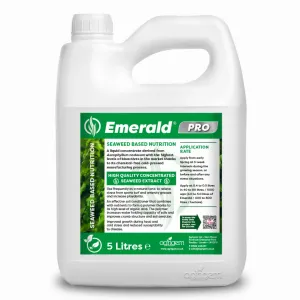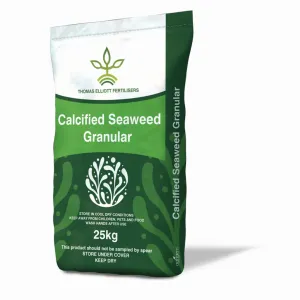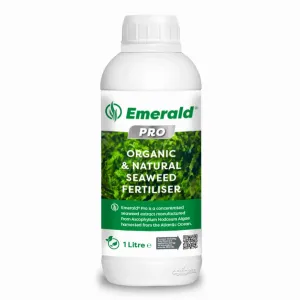First of all, seaweeds are not technically plants due to the fact they lack stems, roots, and other plant structures, and because they absorb nutrients directly through their cell walls.
Rather, they are a spectacularly valuable and nutritious aquatic algae, and it’s these properties that make it popular as a harvestable product for both food and fertilisers.
Once used to produce soda ash, glass and soap, commercial seaweed aquaculture is now a subject of growing interest around the world.
Seaweed is a nutritional powerhouse, jam-packed with vitamins and minerals that can boost human as well as plant health. There are thousands of species, both fresh and saltwater – all with their own colours and characteristics.
Its growth rate makes it astonishingly effective for farming and processing too. Giant Kelp for example has been known to grow a metre a day and can reach lengths of 50 metres.
A Fantastic Fertiliser
As a fertiliser, seaweed is very rich in the micronutrients needed to support effective plant health. But it is also used as a growth stimulant, and to help support resistance to pests and diseases in plants and crops.
In fact, around 34% of dried seaweed is made up of minerals - which makes it one of the best sources of these nutrients available.
Customers often ask us if seaweed fertiliser is high in nitrogen. Seaweed is a good source of nitrogen, containing up to 1.5% in its raw form, but this compares well with other fertiliser options.
It is the balance of all the other nutrients that makes seaweed so special - a miracle organism when it comes to use as a fertiliser. It is environmentally friendly and sustainable, making it an excellent choice for organic growers.
Is seaweed Good for Grass?
But what about our lawns - how does seaweed improve grass? Well, if it’s good enough for golf courses, it’s probably good enough for your lawn. For the same reasons it’s valued by plants, there are great reasons to treat your lawn to seaweed.
Seaweed improves chlorophyll production which helps grass produce the food it needs for healthy growth and colour. It also helps the soil retain water for longer, benefitting your lawn during dryer weather spells.
And it doesn’t stop there. Seaweed contains hormones that are known to stimulate root growth, and bioactive compounds that can provide natural resistance to diseases.
Its potassium content helps plants to resist the impacts of stress caused by extreme temperatures, diseases, and infections, and its biostimulant properties mean that it can help improve soil structure – increasing the availability of nutrients.
Even the salt in seaweed helps repel slugs and snails – adding to the long list of this extraordinary algae’s attributes.
But if you’re wondering if there are any plants that do not like seaweed, you need to look indoors. While garden plants and grass will benefit from seaweed fertiliser, there are one or two indoor plants that don’t particularly like it - including spider plants, snake plants, and jade plants.
Liquid and Granular Options
We offer several different seaweed fertilisers here at Agrigem. Our Emerald Pro Seaweed Fertiliser is made from Ascophyllum Nodosum Algae (also known as Rockweed) harvested from the Atlantic.

Brown Ascophyllum Nodosum Seaweed – the basis of Emerald Pro Liquid Fertislier
This fertiliser will improve the quality and yield of ornamentals, crops, flowers, soft fruit and salads with increased sugar content and root mass - promoting uniform ripening, stronger leaves and increased yield.
We also offer a granular calcified seaweed produced from naturally occurring calcified algae and seashells. It helps break down heavy soil, improve its structure and will last longer than powdered lime.
Although seaweed grows prolifically around the British Isles, at the time of writing, the farming of seaweed in the UK is still in the early stages of development.
Our Islands support around 600 species of seaweed, but brown seaweeds such as Kelp and Wrack together with red seaweeds such as Dulce and Laver are the species mostly used by UK businesses.

Red Dulce seaweed in its dried form
The main target for the farmed seaweed industry is food and drink, but fertiliser use will continue to be a significant target business for all the reasons set out here.
Try it on your ornamentals, lawn, and fruit and vegetable crops today. Take a before and after photo and let us know the difference it made in your garden!






